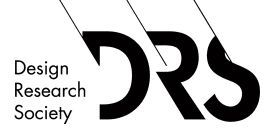contributions
Participatory transformations or: common Otherness
POPPLOW Laura
University of Art and Design Linz, Köln International School of Design
mail@makeandthink.de
Presentation
Abstract
In this paper I will draw on my own experimental participatory design experiments and develop a proposal for a decentered design role in transformation processes: the imagination of Otherness. This concept is inspired by the political thinking of Deleuze and Guattari and offers an alternative to the dichotomy majority vs. minority and, as I propose, an alternative thinking model for political participation through design. It offers a way of thinking design as engaged in and across multiple world makings – and not to think design as an universal tool to engage marginalized minorities. I will first introduce my experience working with fungi as partners in designing, which made me rethink my own assumptions of the design process and the idea of “good participation”. In a second step, I will reflect on the irritations and conflicts of a public hackathon to showcase how Otherness is a necessary perspective when designing for political participation. The imagination of Otherness is not only a perspective to understand the contingency of (political) design processes, but also the multiple temporalities forming transformations.
more-than-human-centred-design; Otherness; becoming-minor; multiple temporalities
About the Authors
Laura Popplow is a European designer and researcher with a background both in cultural studies and media design. Having struggled for many years with my positioning between academia, art, design and activism, I now understand my practice and the trajectory of my thinking as situated design, working within specific contexts and communities. Through a series of projects within diverse urban and rural communities, I developed a perspective on design as political, democratic practice. I am especially interested in designs capability to trace unarticulated issues through sociomaterial making. My PhD focused on the historic and actual practice and discourse of participatory design and transformation design. The ideal of “mutual learning” at the core of participatory design is for me a necessary and valuable guideline to develop a humble form of design practice that does not assume the capability to solve problems and to know how to do good. Acknowledging vulnerability is for me a necessary precondition for mutual learning in co-operative design.


